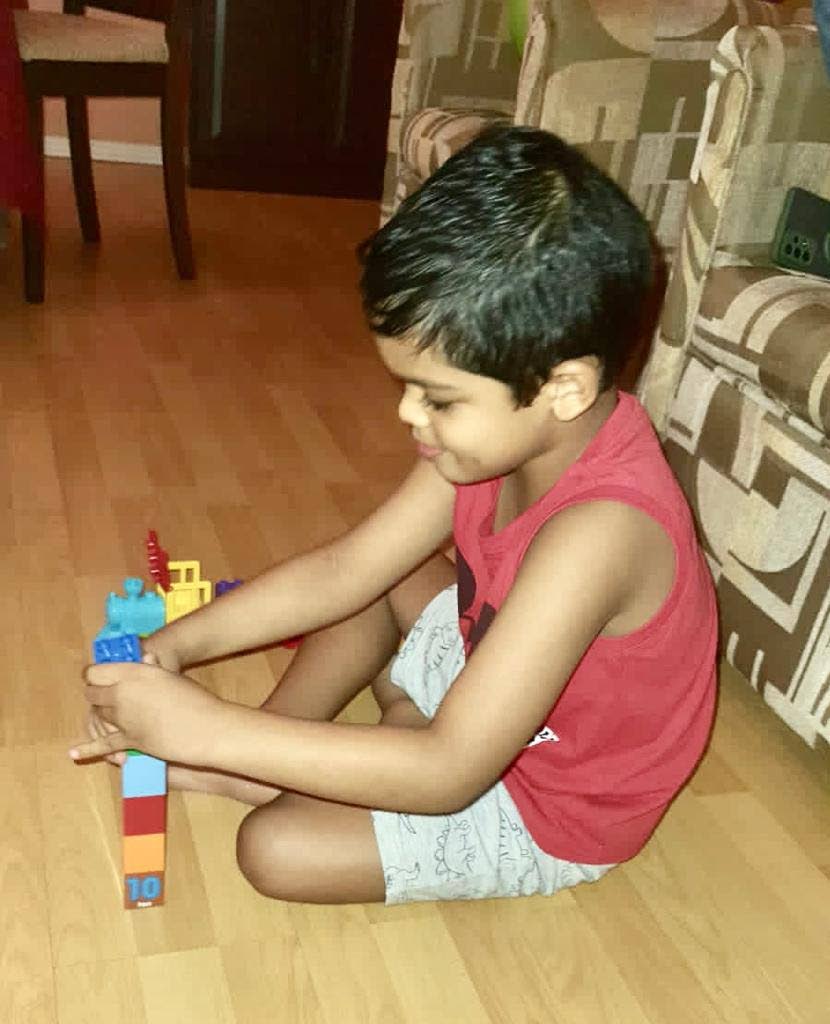Special needs and parents’ denial

DR RADICA MAHASE
“When my child was two years old, I realised that something was wrong. It was clear that something was wrong. He wasn’t making eye contact, he didn’t respond to his name, he wasn’t even making sounds.
"Deep down I knew that something was wrong, but I refused to accept it. I waited another two years before I found the strength to take him to the doctor and get him diagnosed. I think I waited that long because I refused to believe that my child might have some kind of special needs. I told myself that nothing was wrong, that it’s okay if he wasn’t looking at us; that eventually he will know his name and look up when I call him.
"I made excuses for when he wasn’t saying words – when relatives told me that boys take longer to talk, I started believing that and even comforted myself with that. It took four years before I found the strength to get my child diagnosed and another three years of counselling to accept my son’s special needs.”
Denial is one of the common emotions some parents experience when their children are diagnosed with special needs or some type of disability. According to Ann Logsdon, a school psychologist who specialises in helping parents and teachers support students with a range of disabilities, “Denial is refusing to acknowledge that your child has a disability…It's profoundly frightening for some parents to acknowledge a disability. Denial usually comes from a deep-rooted fear that their child will struggle in life or be rejected by others, which are often a parent's worst nightmare.”
Denial is usually manifested at different levels and evident in different ways.
Parents/caregivers might make excuse for things that their children cannot do. Marie, the parent who spoke of her experience above, said, “When my son wasn’t saying words, I said, 'He’s just a baby, he will talk when he’s ready.' My aunt had told me that boys take longer to talk and I held on to that. So even when I saw the months turning into a year and he still wasn’t saying words, I kept telling myself that he’s a baby boy and he’s going to take a little longer and that’s okay.
"It was my way of coping with him not reaching that milestone.”

Some parents blame others for their child’s failure to reach milestones. According to Logsdon, “Parents make excuses for their child's academic setbacks because they don't want to accept a disability. They may blame their child's struggles on teachers or a spouse instead. Or, they may accuse the child of being lazy…”
One parent noted, “When my son was diagnosed, I blamed the gynaecologist – for not picking up on it when I was pregnant. Then I blamed the paediatrician: maybe he didn’t give my child the proper care he needed?
"At some point I convinced myself that it was his first shots that stopped him from developing.
"When he started pre-school, I blamed the teacher because he wasn’t saying enough words.
"I blamed everyone for everything that my child was not doing.”
Denial also comes in the form of exaggeration: parents exaggerate their children’s achievements to make themselves feel better or as a coping strategy.
Dev, father of a ten-year-old boy, says, “I am a limer, a real people person. So it is very hard for me that my autistic son is not interested in playing with me or other children, that he keeps to himself, that he can’t have a conversation with me.
"When people ask me about him, I will go on and on about any little thing he did. Once I got him to sit on the bike, just sit, he didn’t move or anything.
"But for weeks I told everyone who asked me how he’s going that 'he real good, he’s riding bike now.'
"I know that it’s not doing him any good, that he really doesn’t care for the bike and I had to find other things that he likes, but somehow, saying that made me feel better. It made me feel like he was like all the other little boys I know.”
Sometimes parents are in such deep denial that they keep using defensive mechanisms. Some parents tell themselves that there isn’t anything they can do for their child.
Others tell themselves that they are doing everything they could, and thus don’t try to help their children more. Others may believe that they really can’t help the child and just leave him/her to do whatever they want.
The longer a parent is in denial, the more difficult it is for the child. The rate at which parents accept their child’s diagnosis all depends on their mindset, their support system, amongst other things.
Talking to other parents who have children with special needs/disabilities, who have already been through the stages of denial and the diagnosis process can help. Seeking counselling, introspection (why you are in denial) and facing your fears head-on may also help in some way.
While denial might give a sense of comfort, in the long run it will be detrimental to the child.
Radica Mahase is the founder/director of Support Autism T&T


Comments
"Special needs and parents’ denial"